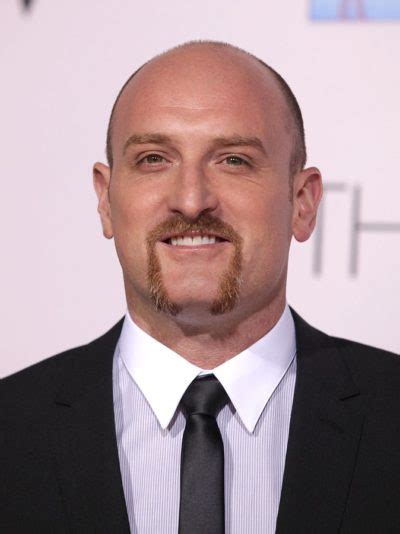A Quote by George Lucas
I loved photography and everybody said it was a crazy thing to do because in those days nobody made it into the film business. I mean, unless you were related to somebody there was no way in.
Related Quotes
This is a story about four people named Everybody, Somebody, Anybody and Nobody. There was an important job to do and Everybody was asked to do it. Everybody was sure Somebody would do it. Anybody could have done it, but Nobody did it. Somebody got angry because it was Everybody’s job. Everybody thought Anybody would do it, but Nobody realized that Everybody wouldn’t do it. It ended up that Everybody blamed Somebody when Nobody did what Anybody could have done.
When you are overworked and exhausted, there is a sense of kind of delirium and that's why I think architects do all-nighters and they kind of do those deadlines. For four days I remember doing four nights in one row with no sleep. I mean nobody, unless you are crazy, would do that, but you are totally focused on the project.
Anyway, I keep picturing all these little kids playing some game in this big field of rye and all. Thousands of little kids, and nobody's around - nobody big, I mean - except me. And I'm standing on the edge of some crazy cliff. What I have to do, I have to catch everybody if they start to go over the cliff - I mean if they're running and they don't look where they're going I have to come out from somewhere and catch them. That's all I do all day. I'd just be the catcher in the rye and all. I know it's crazy, but that's the only thing I'd really like to be.
When I worked with General Electric, again this was soon after the Second World War, you know, I was keeping up with new developments and they showed me a milling machine and this thing worked by punch cards - that's where computers were at that time, and everybody was sort of sheepish about how well this thing worked because in those days machinists were treated as though they were great musicians because they were virtuosos on these machines.
Clarity is of no importance because nobody listens and nobody knows what you mean no matter what you mean, nor how clearly you mean what you mean. But if you have vitality enough of knowing
enough of what you mean, somebody and sometime and sometimes a great many will have to realize that you know what you mean and so they will agree that you mean what you know, what you know
you mean, which is as near as anybody can come to understanding any one.
When I first started working on movies as a production assistant, we were shooting 65, 75, 85 days. I mean, granted some of those things were "Godzilla," "Deep Impact," and those kinds of things, but these days it's like 30-35 days or 40-45 days and you just feel like you're humping trying to get everything done. It's like "Move on, move on, move on!" That's not the way to get the best performances or the most interesting shots. You have to constantly balance schedule and quality of work. For me, that's the biggest thing.
When you go into a movie and you're surprised by it - these days with brand recognition being such an important thing and essentially trailers, the way trailers have evolved encouraging people not to see the film unless they've already seen the film which is kind of the paradox of marketing these days anytime that you enjoy genuine sense of wonder and surprise in the movies it's priceless.
I made films with my brothers and my cousins and if any of the films ever come to fruition my career will be in ruins because the acting, writing, and directing is so unbelievably, heinously bad. We once screened one for my grandfather, this film that we had painstakingly made over a couple of days when we were all 10 years old, and he sat there and he said, "This is the worst film I've ever seen." No sympathy whatsoever.
We get crazy when we can't make things be like the world tells us they are". She looked back out the window. "It was that way for me and your brother, I think. I mean, how could I have loved him that last year? I didn't even know who he was. He was way more attracted to drugs and bikers and that whole lifestyle than he was to me. But somebody told me that if you really loved somebody,you stayed with him no matter what. You had to fight for him." She laughe. "Hell, I was convinced.
It makes it very easy. I have a beginning, middle, and end, and I don't film for long - about 20 hours usually for a two-hour film - so it's easily watchable in a week for me and the editor. Once I know who the characters are, I only film those characters, unless somebody else forces their way into the film by a scene happening to them or we meet them by chance.






































